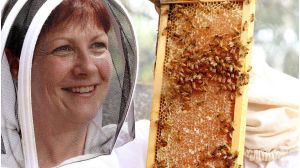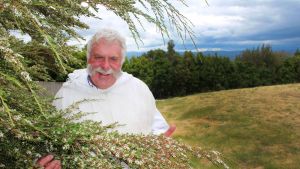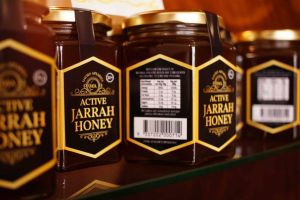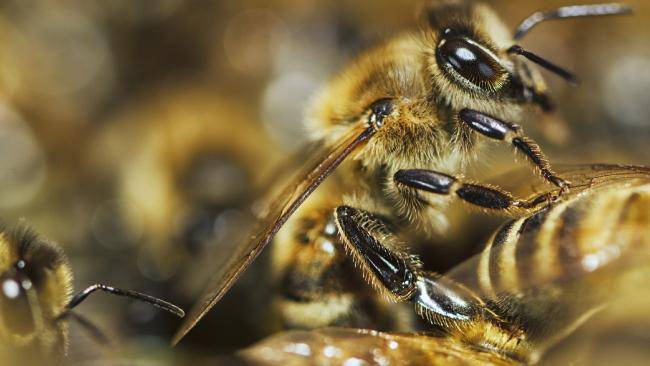A sticky tug of war has arisen over the right to the “manuka honey” label — the name attached to a pricey variety whose superfood status has won it fans from TV’s Kourtney Kardashian to tennis star Novak Djokovic.
New Zealand honey makers recently made a beeline for the country’s Intellectual Property Office seeking exclusive international rights to “manuka”, noting that it’s the name their country’s indigenous Maori people gave to the tree whose nectar is the basis of the honey. Their counterparts in Australia shot back that while they may mostly know the tree by the rather more prosaic name “jellybush” (in scientific nomenclature, Leptospermum scoparium), it is native there as well.
“They complain that they can’t produce enough manuka honey for the world, and they forget about us,” Lindsay Bourke, chairman of the Australian Honey Bee Industry Council, said of the New Zealanders. “They are our closest friends, and they should be working with us.”
The council said it intended to file an objection to the trademark application, which was made by Unique Manuka Factor, a trade group representing most of New Zealand’s manuka producers.
For the honey makers of New Zealand — No 3 globally in exports at $US227 million ($301m), about 80 per cent from the manuka variety — the worries go deeper than Australia. They fear anyone in the right climate could get hold of tree seedlings and start making their own manuka. At least one British producer says some of its honey as containing the manuka variety.
Winning a trademark would prevent producers outside New Zealand from labelling their honey manuka — much as wine producers outside France’s Champagne region are barred from using that storied name for their sparkling wine, even if they make it with the same grapes and the same production process.
“It’s about protecting the names and words that are of value to you as a country,” said John Rawcliffe, spokesman for Unique Manuka Factor Honey Association. “Anyone could plant manuka anywhere. And the consumer is demanding to know it has come from here.”
The incentive on all sides is clear: While the export value of ordinary honey is about US20c an ounce, manuka honey can bring $US3.40, according to the New Zealand government. Its popularity is driven by scientific research showing it can help heal wounds, ulcers and burns (the US Food and Drug Administration has approved the sale of manuka honey dressings) and bolder claims by fans that its health benefits range from soothing a sore throat to boosting the immune system. The honey’s antibacterial properties are the product of substances in the nectar produced by the tree’s flowers, converted and accentuated by bee magic.
Djokovic has said he starts his day with two teaspoons of manuka honey and also eats it during matches. Kardashian has been hired to front an advertisement for New Zealand-based cosmetics company Manuka Doctor.
The decision to apply for a trademark, Mr Rawcliffe said, was partly prompted by signs that Australia’s manuka industry, while small in comparison to New Zealand’s, was getting bigger.
Australian researchers are working to determine which of the country’s 86 jellybush varieties produce the right kind of nectar; new investors are looking to move into the sector; and producers are increasing capacity.
“The market has really exploded and much of that has been driven by demand from China,” says Michael Howes, owner of Active Medicinal Honey, who is looking to double the number of hives he has in NSW to 1000.
Not everyone in New Zealand is upset by Australia’s ambitions. NZ honey producer Comvita has formed a joint venture with Australia’s largest producer, Capilano, to increase its access to Australian honey. Comvita looked to source from Australia because its manuka is cheaper — primarily because consumers dislike the taste. For Comvita, this isn’t a problem, chief executive Scott Coulter said: It buys the honey mostly for medical uses.
As for the name, Mr Coulter said, Australia had reasonable objections to New Zealand’s monopoly hopes — beyond, that is, having a suburb of its capital, Canberra, called Manuka.
“They have the same type of plant and they produce the same type of honey from it,” he said, “so it’s hard to argue that it’s the sole rights of New Zealand to sell that type of honey.”





